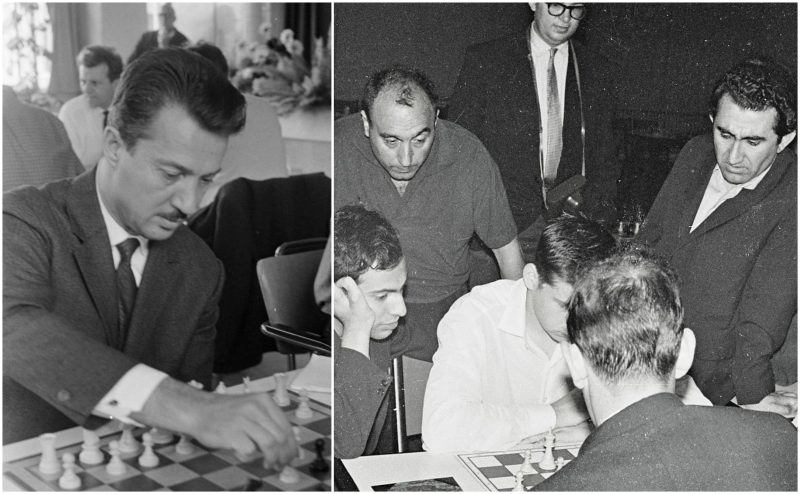The two chess titans competed in the 1959 International Candidates’ Tournament in Yugoslavia, along with other famous grandmasters.
Bobby Fischer was already a key figure in chess at a young age.
Yugoslav Marshal Josip Broz Tito, an amateur chess player himself, full-heartedly supported the grand tournament.
Botvinnik was on everyone’s mind, as the victor would get to challenge him for the World Chess Champion title. It was an exciting time for chess.
The chess tournament would decide the 4th Candidate for the World Tournament in 28 rounds.
The victor was Mikhail Tal (1936 – 1992), as this victory would launch his career as the youngest ever world champion.
It was held from September 7, 1959, and finished on October 31, 1959.
Yugoslav cities such as Bled, Belgrade, and Zagreb were the locations in which the tournament was hosted.
Many great names in chess participated in it, such as Tal, Gligorić, Petrosian, Benko, Olafsson, and Fischer.
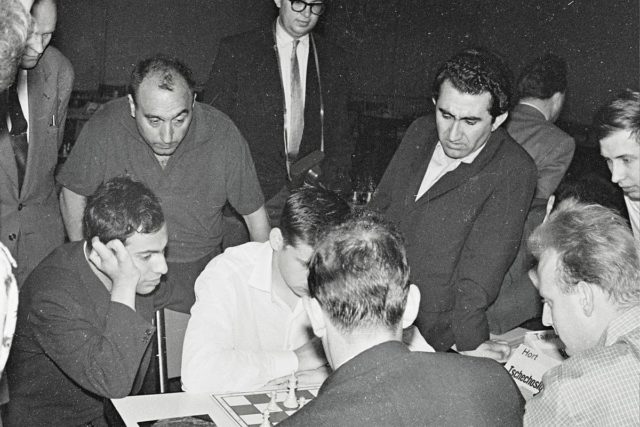
Svetozar Gligorić (Serbian: Светозар Глигорић, 2 February 1923 – 14 August 2012) made significant contributions to chess.
He fell in love with chess at an early age, carving pieces from wood and corks, and thoroughly studied and practiced the game.
His unmatched skill and method of the “King’s Indian Defense” chess opening, as well as the “Ruy Lopez” is one of his many chess talents that have been popularized.
Fluent in several languages, he worked as a professional journalist and chess games organizer, and is certainly revered as one of the greatest names in chess history.
Besides chess, his most enduring passions was music, going far as even releasing a CD featuring jazz and rap compositions.
He won the Yugoslav Championship twelve times and represented his country with great success in fifteen Chess Olympiads.
The legendary grandmaster is also famous for his saying “I play against pieces”.
It directly reflects his chess temperament and personality that puts emphasis on focusing what’s on the board, rather than the opponent’s general demeanor and intimidation.
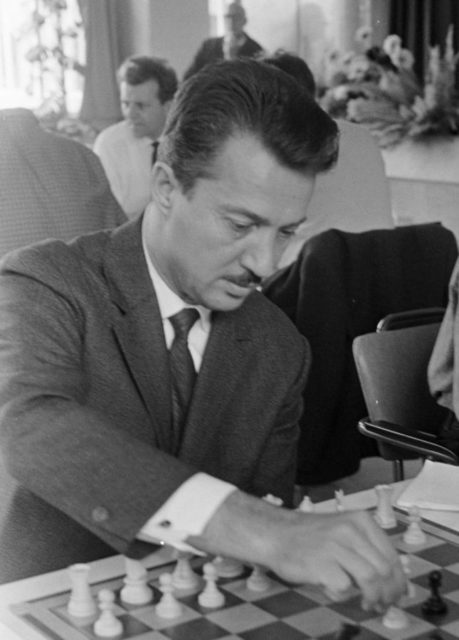
As a young and promising chess player from Moscow, Tigran Petrosian quickly gained his fair share of fame as the greatest defense grandmaster of all time.
He emphasized on strict vigilance and caution on the board, always having an answer to the opponent’s aggression and silencing every threat.
When the opponent grew exhausted of Petrosian’s frustrating yet impressive moves, he would make his attack and it almost always proved devastating.
This “Iron Fortress” chess demeanor that Petrosian was most known for was not spared of harsh criticism among chess champions and journalists.
Still, Petrosian kept paving the way towards greatness, winning a World Championship and holding the title for 6 years.
Bobby Fischer remarked of his notorious method, “If Petrosian played more boldly, he would be the strongest player in the world.”
Two years after Bobby Fischer’s remark, Petrosian would win the 1963 World Championship in Moscow against the three-time champion, Soviet chess titan Mikhail Botvinnik.
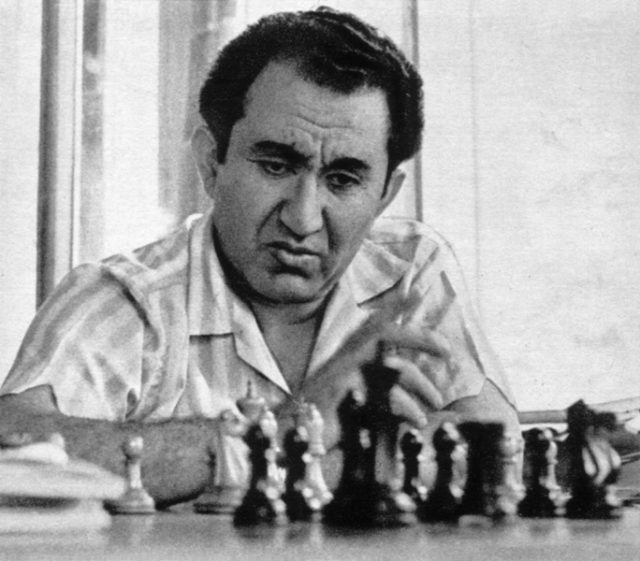
In one particular game of the 1959 Yugoslavian Tournament, Petrosian played against Svetozar Gligorić. Already in a standstill position, Petrosian considered offering Gligorić a draw.
At that moment Gligorić refused, but after a while, he reversed his decision and offered Petrosian a re-draw, since he saw no other alternative to the stuck game.
Much to Gligorić’s lack of awareness, Petrosian was deaf and he wore a hearing aid. Apparently, he turned it off just after he offered Gligorić the first draw and continued building his “Iron Fortress”, as Gligorić didn’t ask for a re-draw again.
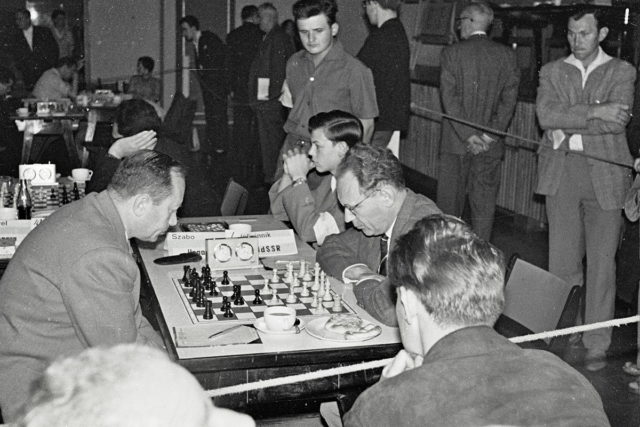
Surprisingly, Petrosian won that match. He kept playing since he didn’t hear Gligorić’s draw offer, as he would have surely accepted the draw.
The match was an entertaining clash of titans, one of the many amusing games in chess history.
In a serious chess tournament that contains nothing but skilled experts of the highest ranks, there are also moments of amusement and hilarity.
Here is another amusing chess story: The Mechanical Turk: a chess-playing “android” from 1770
An example that proves chess is a sport that reflects not only the brilliance of logic and competitiveness but also the simple essence of human nature.
